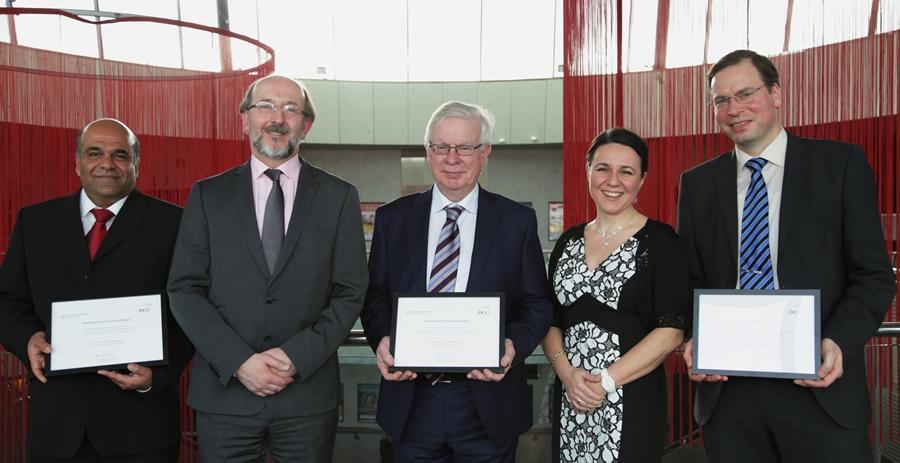

President’s Awards for Research 2016
The President’s Awards for Research have been presented to Professor Jens Ducree, Professor Gerry McNamara and Dr Prince Anandarajah at this year’s Research Day.
Professor Ducree, DCU School of Physical Sciences, received the President’s Research Award in Science and Engineering for his outstanding contribution to the field of microsystems. Such highly miniaturised devices have already pervaded our modern lives, for example as embedded sensors measuring location, speed, acceleration and location in our cars and smartphones. The field of microsystems will continue to form a key link at the interdisciplinary cross-roads of many translational science and engineering initiatives in DCU, thus playing a vital role in promoting its strategic vision as Ireland’s University of Enterprise.
In the course of a varied and dynamic career Professor Gerry McNamara of DCU School of Education Studies has been a teacher, a curriculum developer, an evaluator, a researcher and an administrator. In each of these roles he has excelled and at all times has remained committed to the idea that everyone who encounters our education system deserves an experience of the highest quality no matter who they are or where they are from. His award for research excellence in the area of Humanities, Social Sciences, Business & Education recognise his national and international reputation in the field of Educational Evaluation.
Dr. Prince Anandarajah of the School of Electronic Engineering receives a President’s Research Award in the Research Staff category. This is the first time that an award has been made in this category. Prince’s research is in the area of high-speed photonic and optical networks, an area of enquiry that has transformed the world over the last 40 years and shows no sign of slowing down. In particular he has pioneered the development of optical comb sources, optical return to zero transmitters, and spectrally efficient modulation formats. Simply put - innovations like these are what allow us to transmit ever-increasing amounts of digital data more quickly, and over longer distances, than ever before.
Read about some highlights of DCU's research here.
